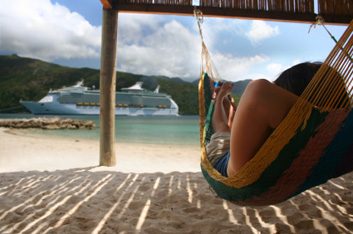
Be aware of the risks
When it comes to road trips, “most of us spend more time creating our sightseeing itinerary than on planning a safe traffic route,” points out Rochelle Sobel, president of the Association for Safe International Road Travel (ASIRT) in Rockville, Maryland. That’s a problem, she adds, given that road accidents are the single biggest cause of death of North Americans travelling abroad (an estimated 50 Canadians die each year). And 90 percent of all road deaths and injuries occur in low- and middle-income countries. “It’s true that travellers don’t give as much attention to health and safety beyond getting vaccinated,” says Dr. Jay Keystone, director of Medisys Travel Health and Immunization Clinic Toronto.
Here are some other essential things you should do to stay safe.

Be familiar with road laws and culture
“People don’t even think about being injured in a traffic collision when they are on foot.” In fact, a lack of familiarity with local road laws and road culture (for example, stop signs and traffic lights are ignored in some countries), combined with poor traffic infrastructure (missing signs, dangerous roads, unsafe vehicles, improper driver training, lack of crosswalks and more) are to blame for the vast majority of road-including pedestrian-accidents.
A motto of ASIRT is “know before you go,” says Sobel. You’ll find a wealth of traffic and road safety information for more than 140 different countries at asirt.org. (Road Travel Reports from ASIRT cost travellers $40; a discount is available for seniors.) There is also a free checklist to go over with a rental car company. Sobel also strongly recommends against driving in foreign countries at night. In countries with poor driving safety, consider hiring a reputable driver to take you around (contact ASIRT for recommendations).

Don’t assume you’re safe on a cruise boat
Fire and power failure are common occurrences on cruise boats, and risk of sexual assault is 50 percent higher than on land in Canada. In 2011, 22 people fell overboard on cruise ships.
Before you cancel your next cruise vacation, remember hundreds of thousands of Canadians take cruises every year. It’s important to put the facts into perspective, says Ross Klein, a sociologist at Memorial University and author of Paradise Lost at Sea: Rethinking Cruise Vacations. Cruise ships aren’t necessarily more dangerous than other forms of travel, but it’s also important not to throw caution overboard (pardon the pun). Fire and power failure are far more common than the highly reported incidents of cruise crashes, but rather than actual danger they tend to pose inconveniences such as delays. People who fall overboard are sometimes not paying attention (so don’t hang out on or near the railings, especially if you are drinking alcohol). Of greatest concern are the high rates of sexual assault on cruise ships; the majority of victims are young women and teens. “And between 2007 and 2008, 50 percent were perpetrated by crew members,” says Klein. “Cruises create this image of romance for passengers, but some crew members may have different ideas about sexuality.”
“You should use the same precautions and safety attitudes on a ship as you would in any town or city,” says Klein. For example, don’t walk down an empty hallway alone at 3 a.m., and don’t leave your children unattended.

Practise good hygiene
Both norovirus-a group of gastrointestinal viruses not caused by food poisoning that used to be called Norwalk viruses-and influenza are transmitted readily by touch. “All it takes is one passenger with norovirus to infect everyone else,” says Keystone. After all, there are thousands of people crammed onto a cruise ship, who also aim to be social and participate in meals and activities together. He adds that outbreaks of measles and rubella can occur on cruise ships as well, because some staff from developing countries are not immunized.
“Wash your hands five times a day, which is what you are supposed to do anyway,” says Keystone. “Really, safe travel is about using common sense. It might not make you 100 percent invulnerable, but it will reduce the chance of something bad happening by 70 or 80 percent.”

Keep an eye on your belongings
Robbery is the most common safety threat on all rail systems, even in developed countries, says Jason Clampet, senior online editor at Frommer’s in New Jersey. But don’t let that deter you from rail travel; Western Europe is still one of the easiest and safest parts of the world to get around by train, while China and Japan are emerging as rail-friendly destinations. “Travel by rail is certainly safer than driving,” says Clampet. “And unlike on planes, your risk of catching an airborne disease isn’t as great because there are no airtight spaces, and you can usually change seats.”
Being alert will help you avoid being robbed. Most robberies on a train occur when you’re not paying attention, or the perpetrators create a distraction, such as pretending to sell a newspaper while another pickpockets your backpack, according to Clampet. Ways to help prevent robbery include travelling with someone and always keeping an eye on your belongings. If you are taking an overnight train, pay extra to book a private couchette. Finally, if you are travelling by rail in developing nations, the cost of going first class is minor compared to the improved health and safety conditions you’ll enjoy.
Related:
• The vaccinations you may need as an adult
• How to stay healthy while you travel
• 9 secrets to staying healthy on cruises
